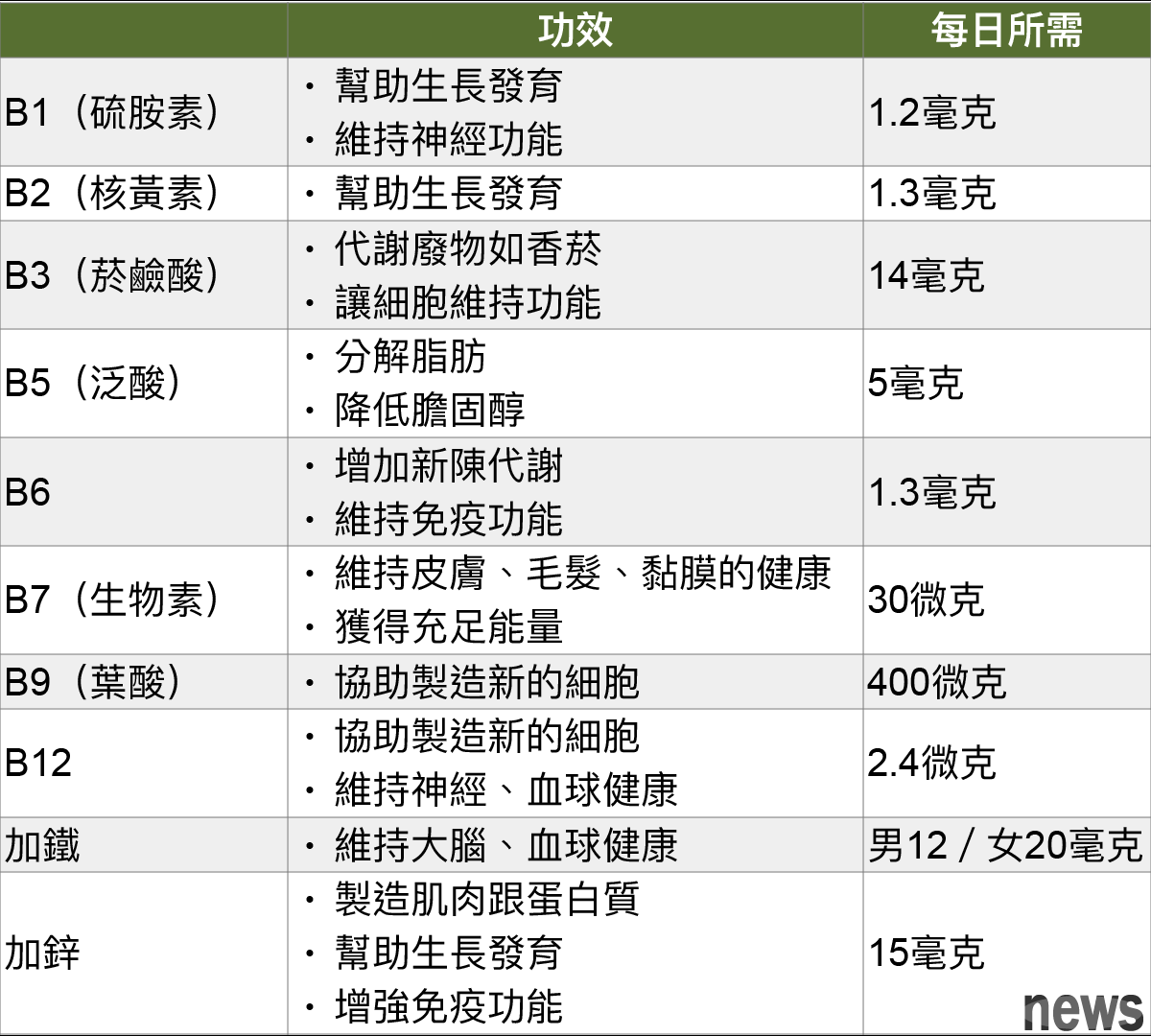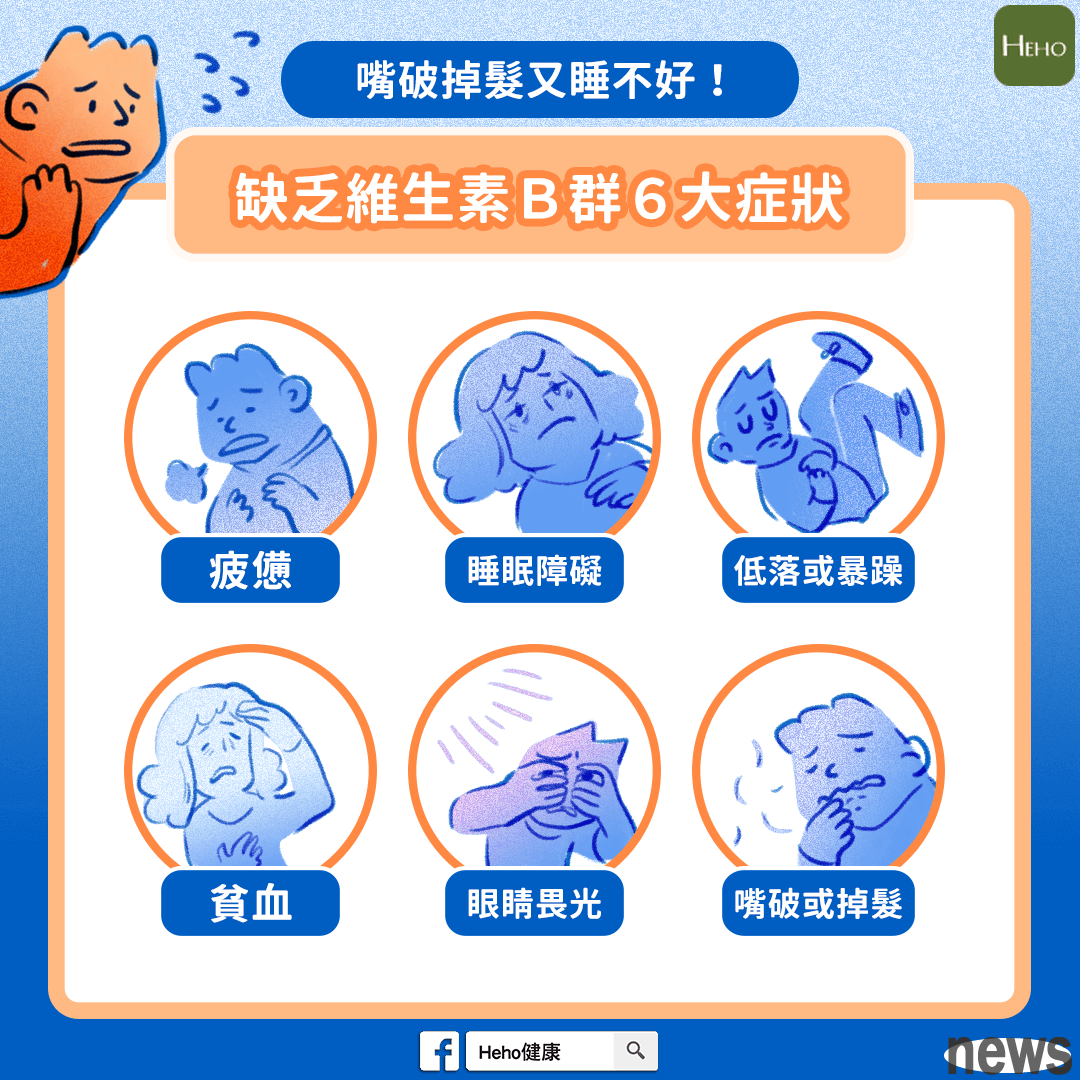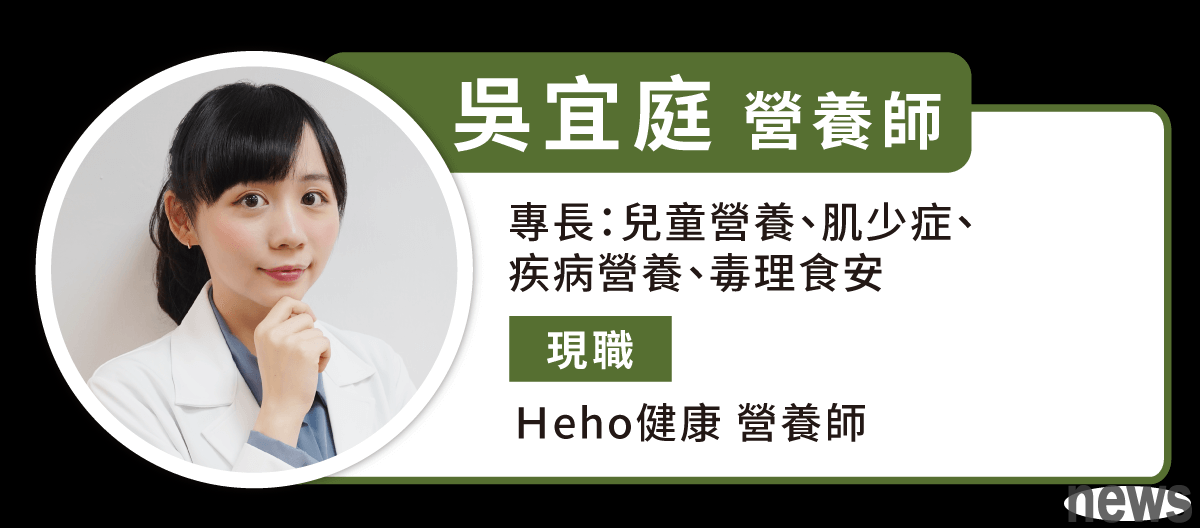
Vitamin B group is the most popular health care nutrition food in the country, only probiotics. There are many types of B on the market, and some people even choose "medical grade". The medical grade is based on drugs, and there are big differences between health foods from research and development to production. Come and listen to Heho nutritionists Yiting and Hu Tingyue pharmacists analyze the differences and how to choose a product that suits you!
What does group B eat? Do I need to replenish it, too?The B vitamin group is the total of eight vitamins, including B1, B2 (ribocin), B3 (smoking), B5 (pantothenic acid), B6, B7 (biotin), B9 (leafic acid) and B12, which play many enzymes that energize energy.

Most people are looking forward to the vitamin B group to promote the new Chen Daihui and make the body full of vitality. You can evaluate whether you need it according to the following three steps:
1. Insufficient intake: B Groups are widely present in various types of foods, such as milk, chicken eggs, whole-sized fruits, meat, and deep green vegetables. If you have a balanced diet, you will hardly lack it. On the contrary, if you are a person who eats outside the meals and has an unbalanced diet, you may have a lack.2. More consumption or increased demand: high pressure, frequent staying up late, alcoholism, kidney washing or long-term diuretics will accelerate group B consumption; people with dysfunction, long-term use of contraceptives, antiviral drugs, blood sugar drugs, or have had poor absorption, which may cause an increase in the demand for group B vitamins.
3. Symptoms of deficiency: Symptoms of group B include fatigue, sleep disorders, blood dysfunction, or angular stomatitis. If the symptoms are severely reconstructed, please seek a correct medical evaluation so that the symptoms can be given.

Many people will buy the "Strength" version, which has the myth that the higher the dose, the better the effect, but in fact, medical grade (study type is "pharmaceuticals") is usually used to target specific symptoms. For example, medical grade B of brands currently on the market is "high dose, small types", such as high doses of B1 and B2, mainly to target neuropathy (such as neuropathy, neuropathy or eye fatigue). If there are generally no special symptoms, it is only for general health care use, it is recommended to use "low dose, multiple types" vitamin B. Group-based (such as B1, B2, B6, B12, etc.).
Drugs analyze the differences between drug grades and food gradesGenerally, health foods are "foods". Except for the 13 functions certified by health food, they must not be claimed as effective. The dosage, appropriateness and usage of the drug grade must be clearly recorded in the imitation. Pharmacist Hu Tingyue said: "The research, development, process and quality control of drugs and health foods are relatively strict. They are tested every season. Whenever there is any doubt, they will be removed from the shelves precautions, but the food level is not so serious."
"If it is effective, it will have side effects. It is recommended to use it according to the prescription after being diagnosed by the doctor." Hu Tingyue added: "Group B can accelerate the body's reaction, so for people with more sensitive digestive tracts, B will be taken every time. Groups will increase stomach peristalsis, which may have side effects of diarrhea or nausea. Although water-soluble vitamins are easily excreted, taking too much for a long period of time will still increase liver and kidney burden. ”

Standing at the nutritionist's position, of course I hope everyone can eat a balanced diet and supplement trace nutrients from natural prototype foods, but it is not easy in reality. Therefore, it is recommended that if there is a need after evaluation by professional medical personnel, first select suitable products (specific high doses can be supplemented with symptoms, and various low doses for general health care options), and supplement them with personal diet and lifestyle conditions. For example, you can add Group B before stress, staying up late the day after day, back pain or drinking, and it does not necessarily require regular supplementation.
